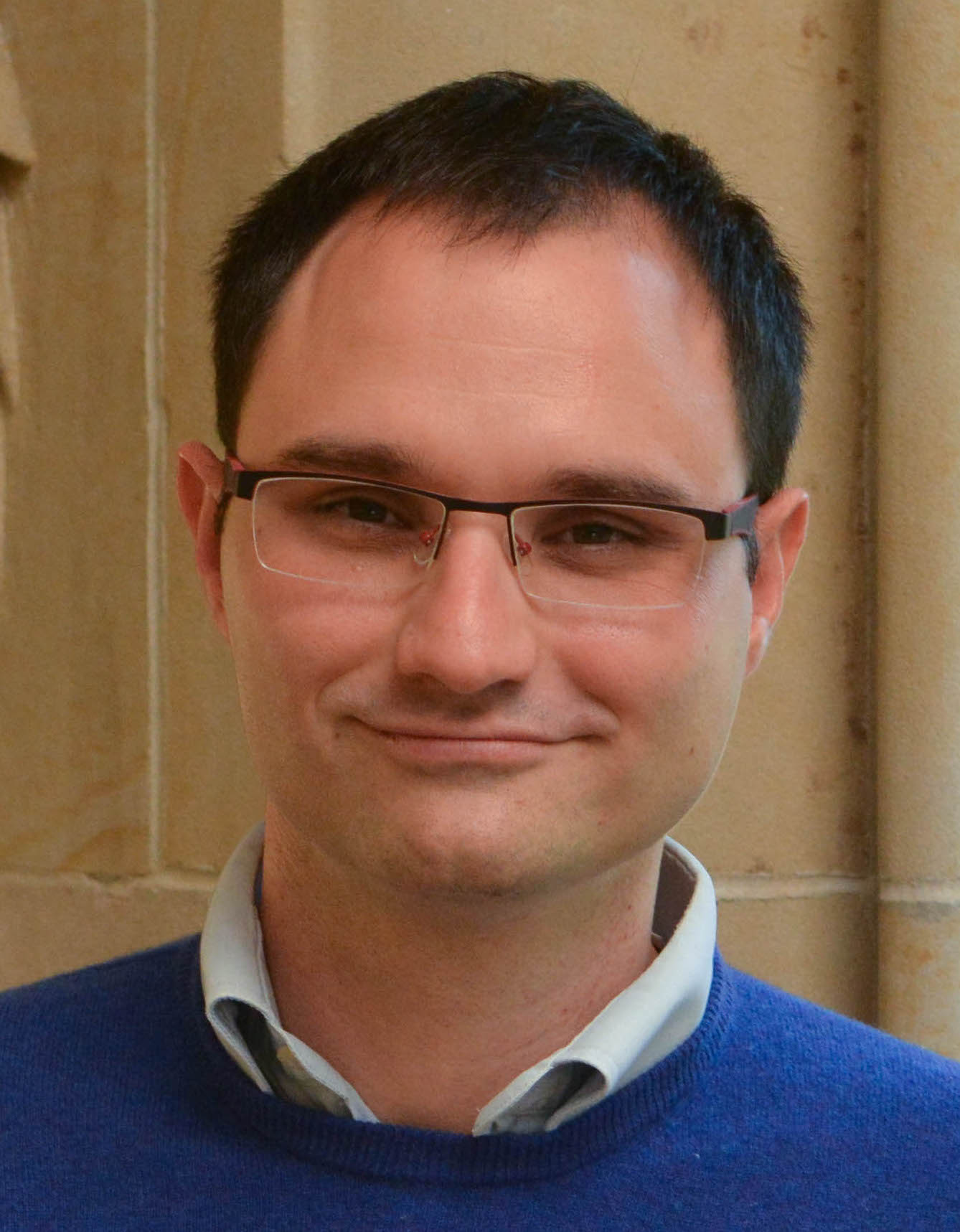Gabór M. Tóth Awarded 2018-2019 Center Postdoctoral Research Fellowship

Gabór M. Tóth, a postdoctoral associate currently completing a dual fellowship at the Yale University Digital Humanities Lab and the Fortunoff Video Archive for Holocaust Testimonies, has been awarded the 2018-2019 Center Postdoctoral Research Fellowship at the USC Shoah Foundation Center for Advanced Genocide Research. This fellowship provides support to an outstanding postdoctoral scholar from any discipline who will advance digital genocide research through the use of the USC Shoah Foundation Visual History Archive (VHA).
Tóth will be in residence at the Center for the 2018-2019 academic year to work on a monograph about the commonalities and differences underlying survivors’ experiences of Nazi persecution. His analysis for the monograph is facilitated by the development of an exploratory tool, a digital transcript reader, produced by Tóth in conjunction with the Fortunoff Video Archive for Holocaust Testimonies and Yale Library’s Digital Humanities Lab. The transcript reader aims to “enhance the exploration of hidden connections between testimonies, overlapping and unique survivor experiences, and suppressed memories” in survivor interviews from the Visual History Archive, the Fortunoff Video Archive for Holocaust Testimonies, and the United States Holocaust Memorial Museum. All three institutions have partnered on this exciting project, and Tóth has spent the 2017-2018 academic year in residence at Yale to develop the tool. The project continues with his residency at the Center.
Tóth earned his BA in Italian Literature and Language from Eötvös Lórand Science University, Budapest, his MA in Medieval Studies from Central European University, Budapest, and his PhD in History from the University of Oxford. His doctoral dissertation, entitled “Thinking and Knowledge in Renaissance Florence: a Computer Assisted Analysis of the Diaries and Commonplace Books of Giovanni Rucellai and his Contemporaries,” built on archival research of the knowledge system in early modern Italy to argue “that the transition from oral to literate culture produced quantitative and qualitative changes in human thought, which greatly contributed to the birth of modern thought.”
As a digital humanist, Tóth is very interested in the “application[s] of corpus and computational linguistics, text and data mining for Humanities research,” as well as the study of human cognition using historical documents. Tóth has won many awards, including a 2015 Visiting Fellowship at the University of Oxford’s Center for Humanities, the 2016 Gerda Henkel Fellowship in Digital History at the German Historical Institute in Washington, D.C., and most recently a position as a 2017-2018 Postdoctoral Associate at Yale University’s Fortunoff Video Archive for Holocaust Testimonies and Digital Humanities lab. He has worked and is fluent in Hungarian, Italian, French and German. His work has been published in journals including Oxford’s Journal of Literary and Linguistic Computing, the CEU Annual of Medieval Studies and Fondazione Cini’s Studi Venezi. Tóth is also the founder and co-organizer of Hi-Cor, an interdisciplinary research group of historians and computational/corpus linguists at Oxford University.